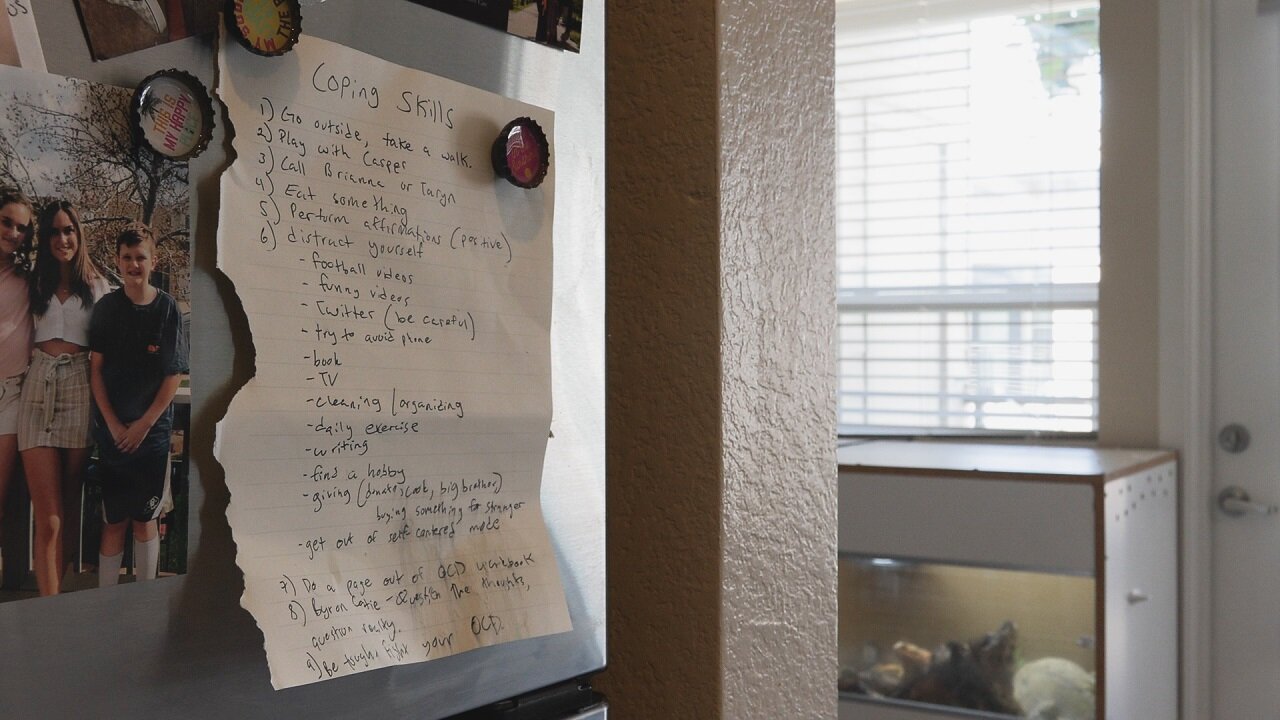One man’s message about cannabis-induced psychosis

DENVER — Five years ago, Ethan Andrew had what he describes as the most terrifying experience of his life.
“I had what’s called cannabis-induced psychosis. It’s a break from reality after ingesting too much high potency marijuana. I was having schizophrenia-like symptoms, like seeing things and hearing things weren’t there. I was super paranoid that people were following me,” said Andrew, who started using cannabis because he thought it would help with his anxiety, depression and obsessive-compulsive disorder.
He said it took two months for the symptoms of psychosis to pass. But for Andrew, not knowing the difference between his dreams and reality was the worst part of what he went through.
“I had a dream that my friends and I went hiking and the next day I’d hang out with them and be like, ‘Guys, wasn’t that so fun?’ And they’d be like, ‘What are you talking about?’ It was such a surreal experience when you’re awake, you don’t know if you’re actually dreaming,” Andrew described.
He started smoking cannabis when he was 16, and the symptoms of cannabis-induced psychosis started when Andrew was 18, after several months of smoking what he called high-potency marijuana every day.
“For comparison, when our parents were growing up, cannabis maxed out at like 5 to 10 percent THC, and now just the flower at the dispensary you can’t find anything lower than 20 to 30 percent,” Andrew said.
THC, or tetrahydrocannabinol, is the main psychoactive compound in cannabis that produces the “high” a person feels after consumption. The U.S. Department of Health and Human Services says the amount of THC in today's marijuana is three times higher than what it was before 1995. According to studies compiled by the National Institutes of Health, smoking marijuana with high concentrations of THC can increase a person's risk of experiencing psychosis.

“You just typically think more THC means a better high, you don’t think well what is this chemical I’m putting in my body? What is this chemical doing to my developing brain? You don’t have those questions when you’re a stoner,” Andrew said.
Now, Andrew is 23 and his life is a stable one. He hasn’t smoked in five years.
“I was so scared of getting schizophrenia or having that be ongoing and never going away that I had no temptations to go back to smoking weed at all,” he said.
These days, Andrew has a job he enjoys, a girlfriend and he is starting school in the fall to obtain his associate degree from the Community College of Denver. Regular therapy and exercise help manage his anxiety, depression and obsessive-compulsive disorder.
“Recovery is possible. You can heal. You’ve gotta want to do it. Initially after the first few months of psychosis the first thing I noticed was my memory was getting better, my thoughts were less foggy and I went back to school and went from getting a 1.2 [grade point average] to a 4.0," Andrew said. "So in a way psychosis was a wake up experience for me.”
Dana Knowles is a multimedia journalist at Rocky Mountain PBS. You can reach her at danaknowles@rmpbs.org.
Jeremy Moore is a senior multimedia journalist with Rocky Mountain PBS. You can email him at jeremymoore@rmpbs.org.